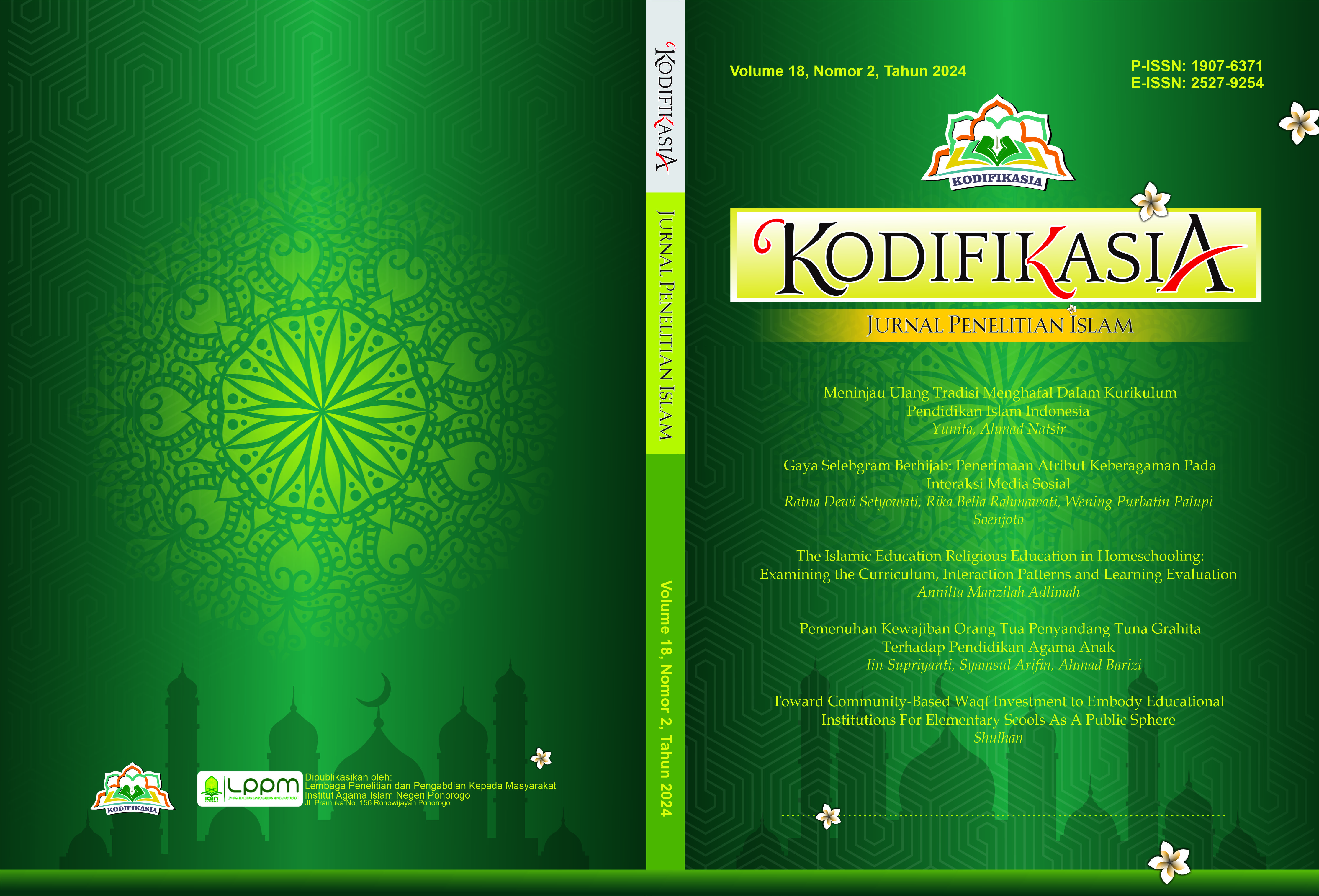THE ISLAMIC RELIGIOUS EDUCATION IN HOMESCHOOLING: EXAMINING THE CURRICULUM, INTERACTION PATTERNS, AND LEARNING EVALUATION
DOI:
https://doi.org/10.21154/kodifikasia.v18i2.9824Abstract
This paper investigates the implementation of Islamic religious education within the homeschooling environment, focusing on curriculum, interaction patterns, and evaluation. Homeschooling provides an alternative for parents to educate their children at home, allowing them to serve as primary educators, particularly in religious education, which is crucial for building a strong moral and spiritual foundation from an early age. This foundation is essential for shaping individuals who are morally grounded and prepared to face life's challenges. The paper employs a qualitative approach with a descriptive analytical method to gain a comprehensive understanding of how Islamic education is implemented in homeschooling settings. The findings reveal three key aspects: first, the Islamic religious education curriculum in homeschooling must be adapted from formal education models, requiring parents to customize it to their children's needs; second, effective interaction patterns between parents and children are essential for a supportive learning environment; and third, continuous evaluation is critical for assessing the effectiveness of the education, measuring goal achievement, and identifying areas for improvement. This research contributes to the field of education by providing a comprehensive understanding of how Islamic religious education can be effectively implemented in a homeschooling context. The study highlights the importance of fostering supportive interaction patterns and establishing robust evaluation methods to ensure the effectiveness of religious education at home.








